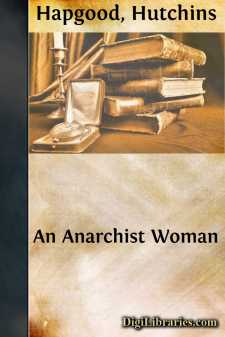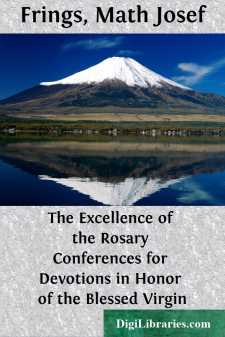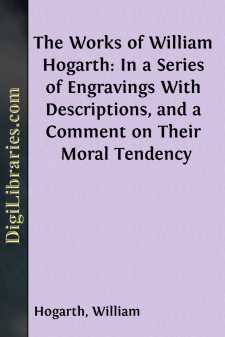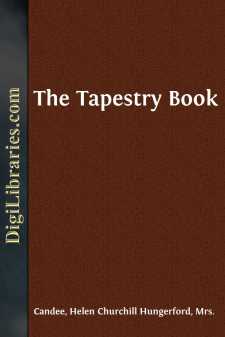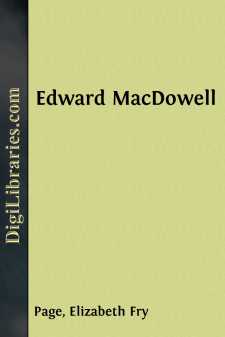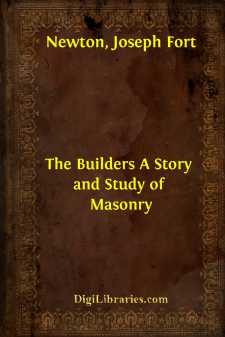Non-Classifiable
- Non-Classifiable 1768
Non-Classifiable Books
Sort by:
by:
Bernard Shaw
BERNARD SHAW N.B. The Euripidean verses in the second act of Major Barbara are not by me, or even directly by Euripides. They are by Professor Gilbert Murray, whose English version of The Baccha; came into our dramatic literature with all the impulsive power of an original work shortly before Major Barbara was begun. The play, indeed, stands indebted to him in more ways than one. G. B. S. Before...
more...
by:
Hutchins Hapgood
CHAPTER I School and Factory When I first met the heroine of this tale, Marie, she was twenty-three years old, yet had lived enough for a woman of more than twice her age; indeed, few women of any age ever acquire the amount of mental experience possessed by this factory hand and servant girl. She had more completely translated her life into terms of thought than any other woman of my acquaintance. She...
more...
I. THE NAME OF THIS DEVOTION "I was exalted as a rose plant in Jericho."—Eccles. xxiv, 18. My dear brethren, when Pope Pius IX, on May 23, 1877, gave audience to a number of pious pilgrims he said to them: "Have courage, my dear children! I exhort you to fight against the persecution of the Church and against anarchy, not with the sword, but with the rosary, with prayer and good...
more...
After being frequently urged to write upon this subject, and as often declining to do it, from apprehension of my own inability, I am at length compelled to take up the pen, however unqualified I may still feel myself for the task. The use of the Foxglove is getting abroad, and it is better the world should derive some instruction, however imperfect, from my experience, than that the lives of men...
more...
by:
William Hogarth
THE LIFE OF HOGARTH. William Hogarth is said to have been the descendant of a family originally from Kirby Thore, in Westmorland. His grandfather was a plain yeoman, who possessed a small tenement in the vale of Bampton, a village about fifteen miles north of Kendal, in that county; and had three sons. The eldest assisted his father in farming, and succeeded to his little freehold. The second settled...
more...
CHAPTER I A FOREWORD THE commercial fact that tapestries have immeasurably increased in value within the last five years, would have little interest were it not that this increase is the direct result of America’s awakened appreciation of this form of art. It has come about in these latter days that tapestries are considered a necessity in the luxurious and elegant homes which are multiplying all...
more...
HIS WORK AND IDEALS "Late explorers say they have found some nations that have no God; but I have not read of any that had no music." "Music means harmony, harmony means love, love means—God."—SIDNEY LANIER. "Music is love in search of a word," said the same poet-musician. He was born full of the music and the love, and so was enabled to find and transmit to the world the...
more...
by:
William Minto
CHAPTER I. DEFOE'S YOUTH AND EARLY PURSUITS. The life of a man of letters is not as a rule eventful. It may be rich in spiritual experiences, but it seldom is rich in active adventure. We ask his biographer to tell us what were his habits of composition, how he talked, how he bore himself in the discharge of his duties to his family, his neighbors, and himself; what were his beliefs on the great...
more...
by:
Horatio Winslow
VERSE MAKING IN GENERAL It is scarcely necessary to write a defense of verse making. As a literary exercise it has been recommended and practiced by every well-known English writer and as a literary asset it has been of practical value at one time or another to most of the authors of to-day. Indirectly it helps one’s prose and is an essential to the understanding of the greatest literature. The fact...
more...
THE ANTEROOM Fourteen years ago the writer of this volume entered the temple of Freemasonry, and that date stands out in memory as one of the most significant days in his life. There was a little spread on the night of his raising, and, as is the custom, the candidate was asked to give his impressions of the Order. Among other things, he made request to know if there was any little book which would...
more...



